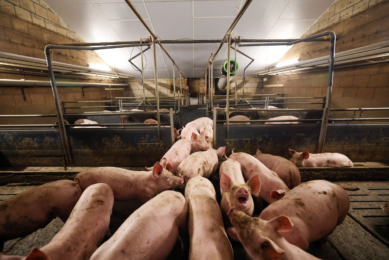Antibiotic resistance tracked at pig farms
A study by the University of Illinois tracked the movement of the antibiotic tetracycline resistant genes from wastewater lagoons to groundwater at two pig farms.
Antibiotic resistant genes sometimes leak from waste lagoons into groundwater
as a result of routine use of antibiotics at swine
facilities.
The US research team discovered some genes found in pig waste
lagoons are transferred from one bacterial species to another, with such
cross-species migration sometimes diluting and at other times amplifying genes
that result in antibiotic resistance.
The researchers said their study is
the first to take a broad sample of tetracycline resistance genes in a landscape
dominated by pig farming, as well as the first to survey the genes directly,
rather than focusing on the organisms that host them.
The findings are
reported in the August issue of the journal Applied and Environmental
Microbiology.
Related website:
University of
Illinois
For more up to date pig news, please visit PigProgress.net











